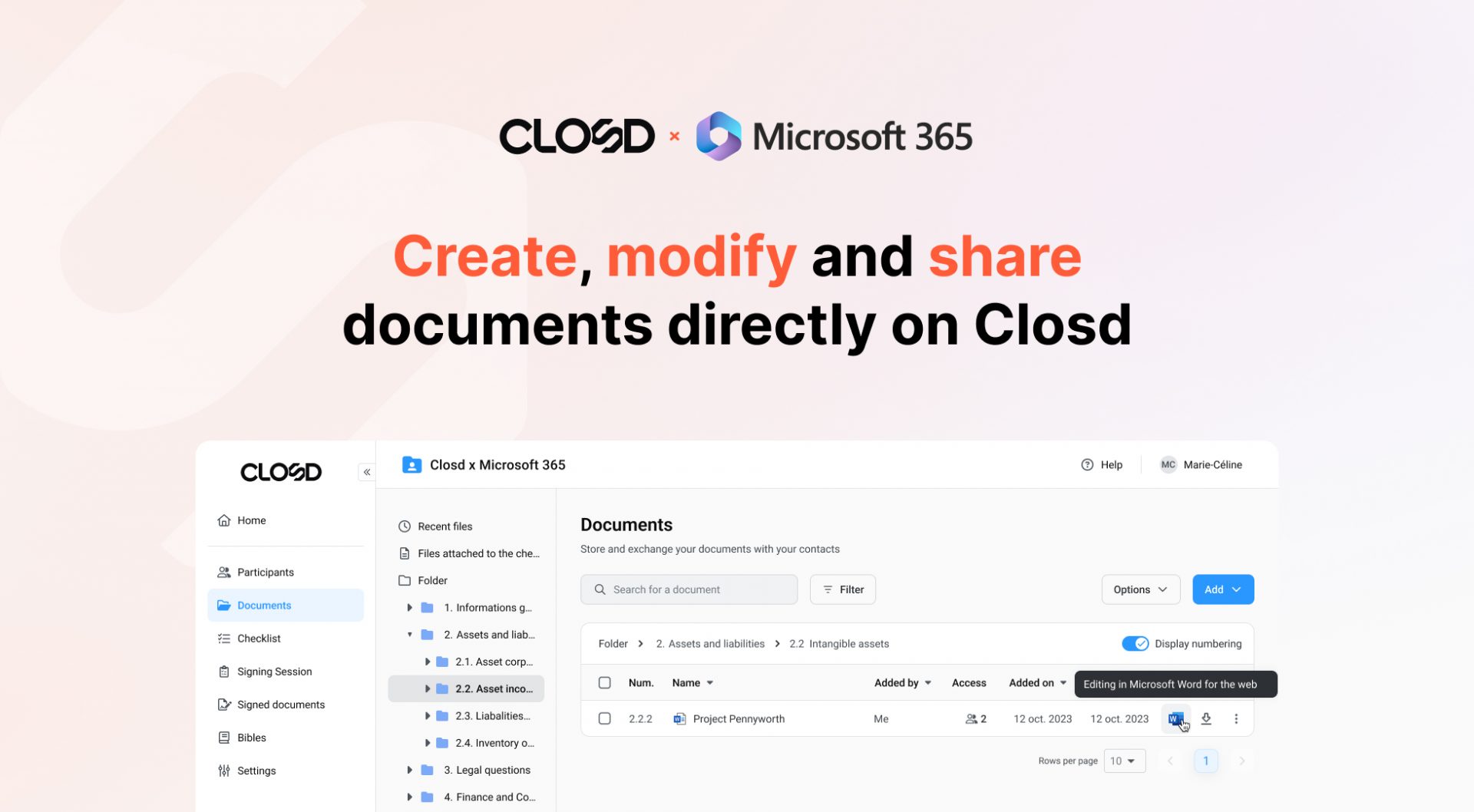Audit processes used to be carried out in person, in meeting rooms, inspecting hundreds of documents scattered across tables. Today, transactional professionals have turned to virtual data room (VDR) solutions. These solutions make it possible to host large volumes of confidential documents and make them available to potential buyers or investors in a secure manner while preserving their confidentiality.
Both a content management solution and a communication tool, the data room aims to provide a single solution to a number of business and legal issues: confidentiality of information, scattered tasks and communication tools, and massive volumes of documents from different sources to manage.
What is the added value of these solutions in the current context? Are traditional solutions agile enough to keep pace with the sector’s evolutions and challenges? And what role can next-generation data room solutions play in challenging the industry’s traditional players and overcoming their limitations?
Download the white paper for free!
Which data room to speed up your due diligence process in 2023?
The party’s over: after a remarkable year for the M&A market in 2021, it is now experiencing a slowdown. Against a tense global and economic backdrop of pandemics, war, inflation, and energy crisis, according to McKinsey, early 2022 saw the value of large deals (more than $25 million) fall 24% from a year earlier, on a 12% drop in deal volume.
For deal-making and M&A professionals, one thing is certain: transactions are taking longer, and fewer of them are coming to a conclusion, while buyers and investors are becoming increasingly cautious, and therefore more attentive to risk management.
A new way of doing deals is emerging. Buyers as well as banks and financing institutions are pushing towards an intensification and tightening of financial and legal due diligence processes prior to a deal.
As a result, parties on the seller’s side are required to provide an increasing number of documents of various kinds, a trend that is part of a more global proliferation of data. For many, the 21st century is the century of data, information, and Big Data. Companies in all sectors are called upon to manage an ever-increasing amount of data. According to a report by MEGA International released in October 2022 (1), organizations are seeing their data volumes double on average every two years.
But when it comes to using data, there are challenges linked to its exploitation and, above all, its protection. The financial and reputational impact on companies is undeniable.
According to IBM, the cost of a data breach has reached new heights in 2022: the average cost has risen by 2.6%, from 4.24 million USD in 2021 to 4.35 million USD in 2022. This is also a 12.7% increase on 2020.
Against this backdrop, solutions for handling ultra-sensitive corporate data have emerged, particularly in the legal and deal-making sectors. The aim is to ensure the confidentiality of this information (personal data, financial and commercial data, industrial data, etc.) and thus the health and competitiveness of companies.
The aim is to provide a collaborative and secure solution, and to enable real-time synchronization of information for all authorized parties. Adopting such a solution therefore represents a strategic choice for the company.
In this white paper, we will look back at the definition of a data room, at the need for companies to secure their audits via this means, and then draw up a functional specification to help companies choose a solution suited to their needs. Finally, we’ll analyze the strengths and weaknesses of traditional data room solutions, and assess whether or not to opt for a next-gen data room solution.




